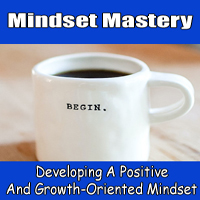


Introverts' Preferred Social Setting

Introverts often find solace and delight in intimate gatherings, where they can foster deep connections and engage in meaningful conversations. In a world that frequently praises large-scale social events and extroverted qualities, it's essential to recognize and celebrate the significance of intimate gatherings for introverts. In this article, we will explore why introverts thrive in such settings and the unique qualities they bring to these gatherings.
1. Meaningful Connections: Introverts value quality over quantity when it comes to social interactions. Intimate gatherings provide the perfect environment for them to cultivate meaningful connections. In smaller groups, introverts have the opportunity to engage on a deeper level, resulting in more authentic and lasting relationships.
2. Authentic Conversations: In intimate gatherings, introverts relish the chance to have authentic conversations. These settings allow for more profound discussions and the sharing of personal thoughts and experiences. Introverts thrive in such conversations, as they appreciate the depth and substance they bring to social interactions.
3. Active Listening: Introverts are known for their excellent listening skills. In intimate gatherings, they can truly shine as attentive listeners. Their ability to pay close attention to others, ask thoughtful questions, and provide support creates a nurturing and comfortable atmosphere for everyone involved.
4. Reduced Overstimulation: Introverts can become overwhelmed by excessive external stimuli, such as noise, large crowds, and constant social interactions. In intimate gatherings, the sensory input is more manageable, allowing introverts to feel at ease and less drained. This reduction in overstimulation is a key reason why they prefer such settings.
5. Enhanced Empathy: Intimate gatherings provide introverts with the opportunity to hone their empathetic skills. They are more attuned to the feelings and needs of those around them, making them excellent hosts and supportive friends in these settings.
6. Quality Over Quantity: Introverts appreciate the depth of connection that comes with small, intimate gatherings. They often choose to spend their social energy wisely, investing it in gatherings that allow for personal and authentic interactions, rather than dispersing it in larger, more superficial events.
7. Comfort And Authenticity: In intimate gatherings, introverts can be themselves and feel a sense of comfort and authenticity. They don't have to put on a facade or engage in small talk. This atmosphere fosters genuine connections and positive social experiences.
8. Balancing Act: Introverts are not averse to larger social gatherings, but they tend to balance them with intimate gatherings where they can rejuvenate and connect deeply with others. This equilibrium is crucial for maintaining their social well-being.
Intimate gatherings hold a special place in the hearts of introverts. These settings allow them to create authentic connections, engage in meaningful conversations, and provide a comfortable atmosphere for their guests. Rather than shy away from social interactions, introverts thrive in smaller, more personal settings, where they can be themselves and develop deeper relationships. It's essential for introverts and their loved ones to appreciate the value of these intimate gatherings and understand why they are so cherished by introverts. By recognizing and celebrating these qualities, we can create a more inclusive world that appreciates and accommodates the unique needs of introverts in social settings.
Self-Reflection As A Tool For Understanding Past Shadows
 What Are Past Shadows?
What Are Past Shadows?
Past shadows refer to the emotional baggage and unresolved issues stemming from negative experiences in our lives. These experiences could be rooted in childhood, traumatic events, broken relationships, or any situation that has left a lasting emotional scar. Past shadows often manifest as recurring patterns of behavior, irrational fears, or unexplained emotional triggers.
The Role Of Self-Reflection
Self-reflection is a contemplative process that involves looking inward to explore one's thoughts, feelings, and experiences. When used as a tool for understanding past shadows, self-reflection allows individuals to:
Gain Awareness: Self-reflection creates awareness of the existence of past shadows. It helps us recognize the emotional imprints that may be affecting our present lives.
Explore Root Causes: Delving into our past through self-reflection enables us to identify the root causes of our emotional baggage. We can pinpoint specific experiences or patterns that have led to our current state.
Uncover Patterns: Self-reflection reveals recurring patterns of behavior or thought that are linked to our past shadows. Recognizing these patterns is the first step towards breaking free from their grip.
Process Emotions: Reflecting on past shadows allows us to process the emotions associated with these experiences. It's an opportunity to validate our feelings and find closure.
Empower Choice: Self-reflection empowers us to make conscious choices about how we respond to past shadows. It allows us to break free from automatic reactions and take control of our emotional well-being.
 Develop Self-Awareness: Knowing your strengths, weaknesses, and emotional triggers is crucial for building resilience. Self-awareness allows you to anticipate your reactions and employ effective coping strategies.
Develop Self-Awareness: Knowing your strengths, weaknesses, and emotional triggers is crucial for building resilience. Self-awareness allows you to anticipate your reactions and employ effective coping strategies.
Embrace Change: Resilient individuals tend to adapt well to change. Practice embracing change by intentionally stepping out of your comfort zone and facing new experiences with an open mind.
Build A Support System: Surround yourself with a network of supportive friends and family who can offer emotional and practical support during tough times. Sharing your struggles with trusted individuals can relieve emotional burdens.
Set Realistic Goals: Establishing achievable short-term and long-term goals provides a sense of purpose and direction. These goals can help you stay motivated and focused during challenging times.
Practice Mindfulness And Stress Management: Mindfulness techniques, such as meditation and deep breathing, can help you stay centered and calm in the face of adversity. Learning to manage stress effectively is a key component of resilience.
Develop Problem-Solving Skills: Instead of seeing problems as insurmountable, view them as opportunities to develop problem-solving skills. Analyze challenges logically and break them down into manageable steps.
Maintain A Positive Perspective: Maintaining a positive outlook, even in difficult situations, can greatly enhance resilience. Focus on the potential for personal growth and positive outcomes.
Building Stronger Relationships And Fostering Understanding
 Improved Communication: Resolving conflicts requires active and empathetic listening. It promotes clear and open communication, which is fundamental for understanding each other's perspectives.
Improved Communication: Resolving conflicts requires active and empathetic listening. It promotes clear and open communication, which is fundamental for understanding each other's perspectives.
Preservation Of Relationships: Conflicts left unresolved can damage relationships. Addressing issues allows both parties to move forward and maintain healthy connections.
Increased Self-Awareness: Conflict resolution can help individuals understand their own triggers and responses, leading to personal growth and self-awareness.
Enhanced Problem-Solving Skills: The process of conflict resolution encourages problem-solving and collaboration, leading to better solutions and outcomes.
Benefits Of Effective Conflict Resolution:
Reduced Stress: Resolving conflicts alleviates the emotional burden that conflicts can impose, leading to reduced stress and anxiety.
Stronger Relationships: When conflicts are addressed constructively, relationships can strengthen, as individuals feel heard and understood.
Positive Work Environment: In professional settings, effective conflict resolution can create a positive work environment, leading to increased productivity and job satisfaction.
Personal Growth: Addressing conflicts fosters personal growth as individuals learn to manage emotions and communicate more effectively.






Embracing Transformation For Personal Development
 When we navigate through unfamiliar territory, we uncover hidden capabilities within ourselves. These challenges bring out our inner strength, perseverance, and the ability to overcome adversity. Through these experiences, we learn that we are more capable and resilient than we often realize.
When we navigate through unfamiliar territory, we uncover hidden capabilities within ourselves. These challenges bring out our inner strength, perseverance, and the ability to overcome adversity. Through these experiences, we learn that we are more capable and resilient than we often realize.
Moreover, change provides an opportunity for self-reflection and self-discovery. In times of transition, we are prompted to reevaluate our goals, values, and priorities. It's an opportunity to clarify our desires, eliminate what no longer serves us, and set new, more meaningful objectives for ourselves. In this way, change can lead to greater self-awareness and personal growth.
Change fosters innovation and creativity. The need to adapt to new circumstances encourages us to think outside the box, find creative solutions, and explore new possibilities. This process of innovation can spark personal growth by expanding our horizons and pushing the boundaries of our comfort zones.
Developing a growth mindset is crucial when it comes to embracing change as an opportunity for personal development. A growth mindset is the belief that abilities and intelligence can be developed through dedication and hard work. When we view change as a chance to learn and grow, we naturally adopt a growth mindset, which, in turn, propels our personal development.
Resilience, adaptability, and an open mind are essential qualities to cultivate when facing change as a growth opportunity. Instead of dwelling on what might be lost, focus on what can be gained. Shift your perspective to see change as a chance to improve, to evolve, and to discover the full extent of your potential.
A Delicate Harmony
 Defining Success And Balance
Defining Success And Balance
Before delving into the strategies for achieving this harmonious balance, it's essential to define what success and balance mean to each person. Success is a deeply personal concept that can encompass career accomplishments, financial stability, personal growth, and fulfillment. Balance, on the other hand, relates to maintaining a proportionate distribution of time and energy between work, personal life, and well-being. Your definitions of success and balance may differ from those of others, and that's perfectly okay.
Prioritization And Goal Setting
Achieving success and balance begins with effective prioritization and goal setting. Clearly define your short-term and long-term goals for your career, personal life, and well-being. By establishing your priorities and identifying what truly matters to you, you can allocate your time and resources more efficiently.